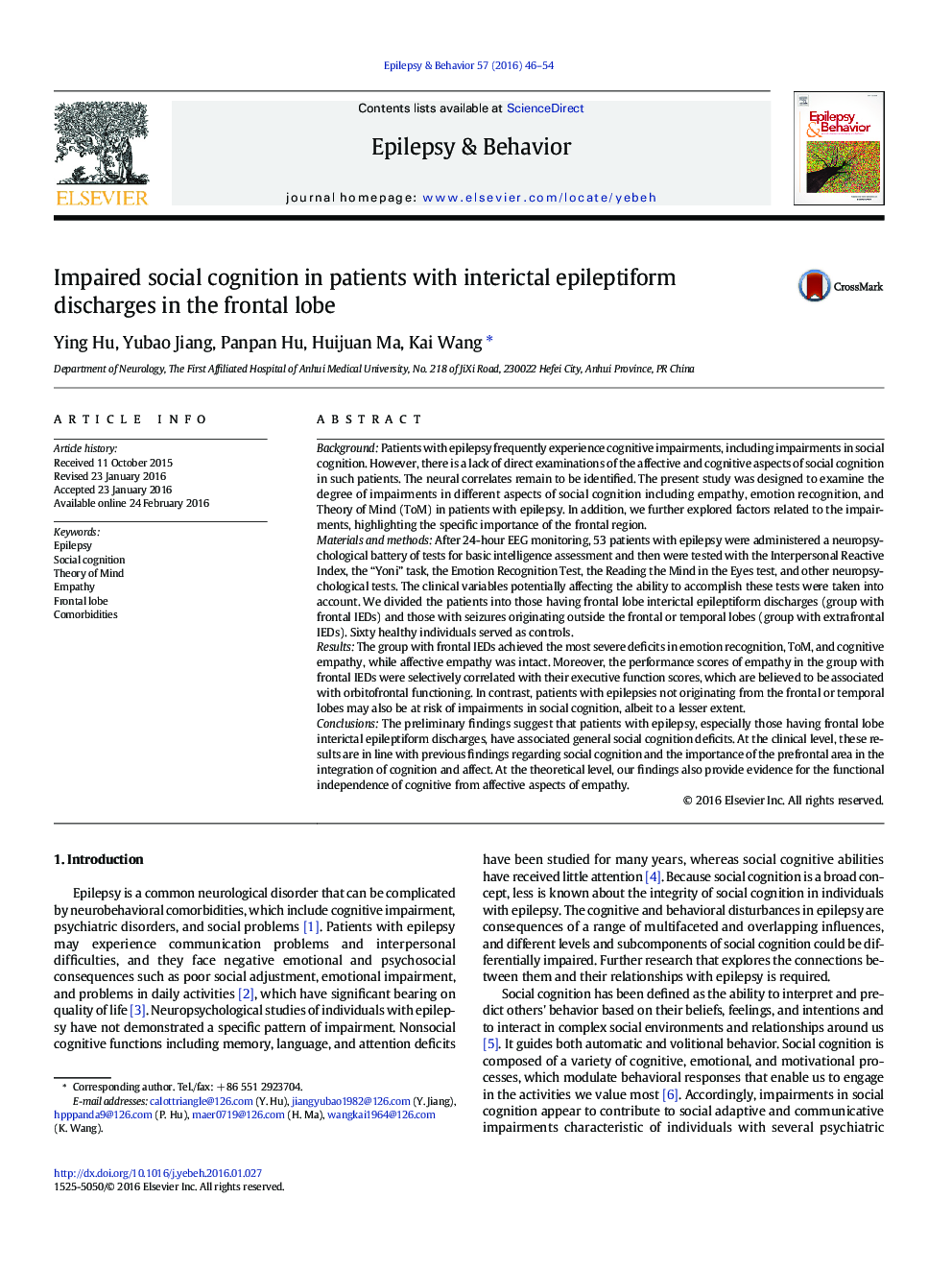| کد مقاله | کد نشریه | سال انتشار | مقاله انگلیسی | نسخه تمام متن |
|---|---|---|---|---|
| 6010224 | 1185874 | 2016 | 9 صفحه PDF | دانلود رایگان |
- We examined the degree of impairments in different aspects of social cognition.
- Interictal epileptiform discharges (IEDs) in the frontal lobe are a risk factor for deficits in social cognition.
- Patients with IEDs have impaired cognitive empathy but preserved emotional empathy.
- The cognitive empathy is roughly equivalent to Theory of Mind.
BackgroundPatients with epilepsy frequently experience cognitive impairments, including impairments in social cognition. However, there is a lack of direct examinations of the affective and cognitive aspects of social cognition in such patients. The neural correlates remain to be identified. The present study was designed to examine the degree of impairments in different aspects of social cognition including empathy, emotion recognition, and Theory of Mind (ToM) in patients with epilepsy. In addition, we further explored factors related to the impairments, highlighting the specific importance of the frontal region.Materials and methodsAfter 24-hour EEG monitoring, 53 patients with epilepsy were administered a neuropsychological battery of tests for basic intelligence assessment and then were tested with the Interpersonal Reactive Index, the “Yoni” task, the Emotion Recognition Test, the Reading the Mind in the Eyes test, and other neuropsychological tests. The clinical variables potentially affecting the ability to accomplish these tests were taken into account. We divided the patients into those having frontal lobe interictal epileptiform discharges (group with frontal IEDs) and those with seizures originating outside the frontal or temporal lobes (group with extrafrontal IEDs). Sixty healthy individuals served as controls.ResultsThe group with frontal IEDs achieved the most severe deficits in emotion recognition, ToM, and cognitive empathy, while affective empathy was intact. Moreover, the performance scores of empathy in the group with frontal IEDs were selectively correlated with their executive function scores, which are believed to be associated with orbitofrontal functioning. In contrast, patients with epilepsies not originating from the frontal or temporal lobes may also be at risk of impairments in social cognition, albeit to a lesser extent.ConclusionsThe preliminary findings suggest that patients with epilepsy, especially those having frontal lobe interictal epileptiform discharges, have associated general social cognition deficits. At the clinical level, these results are in line with previous findings regarding social cognition and the importance of the prefrontal area in the integration of cognition and affect. At the theoretical level, our findings also provide evidence for the functional independence of cognitive from affective aspects of empathy.
Journal: Epilepsy & Behavior - Volume 57, Part A, April 2016, Pages 46-54
